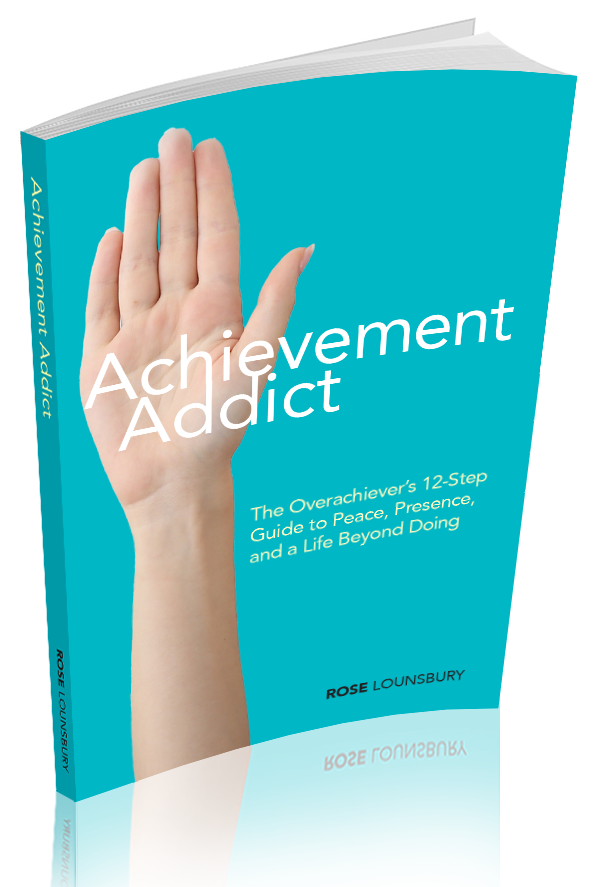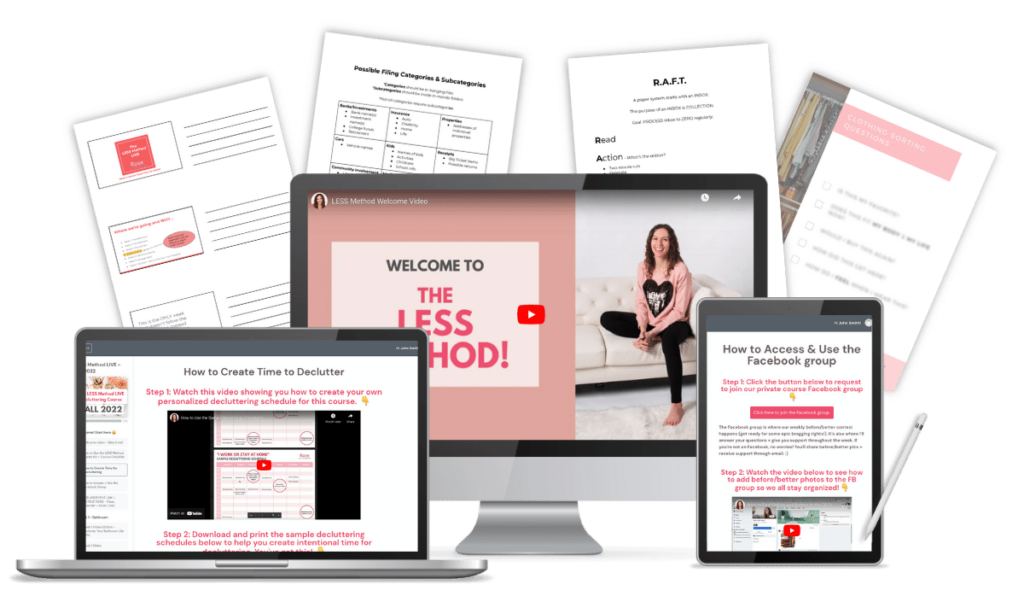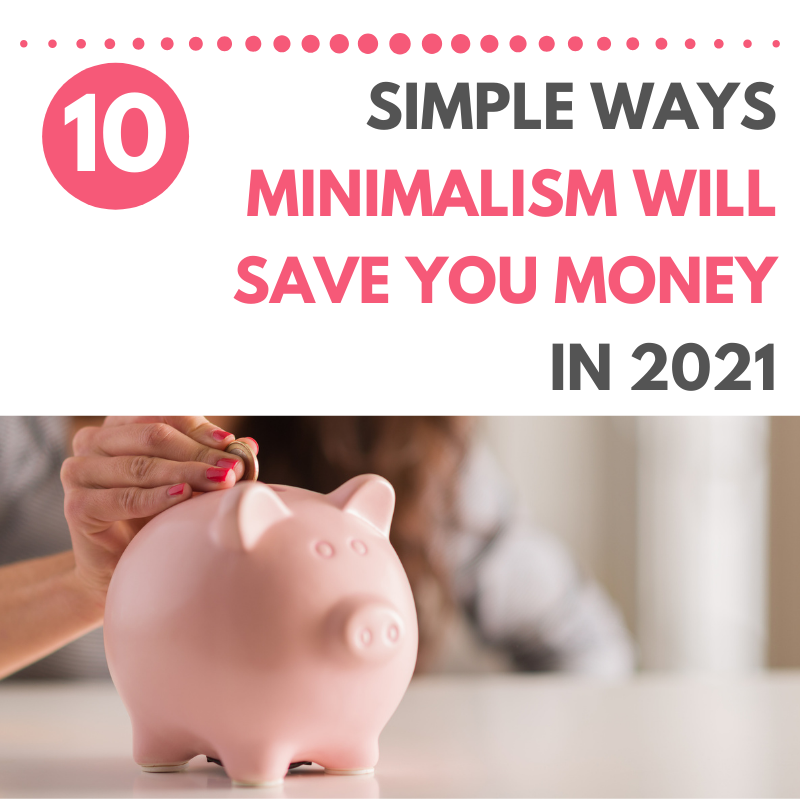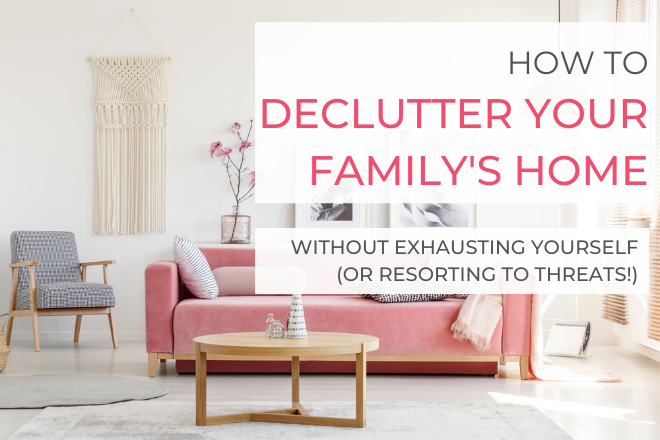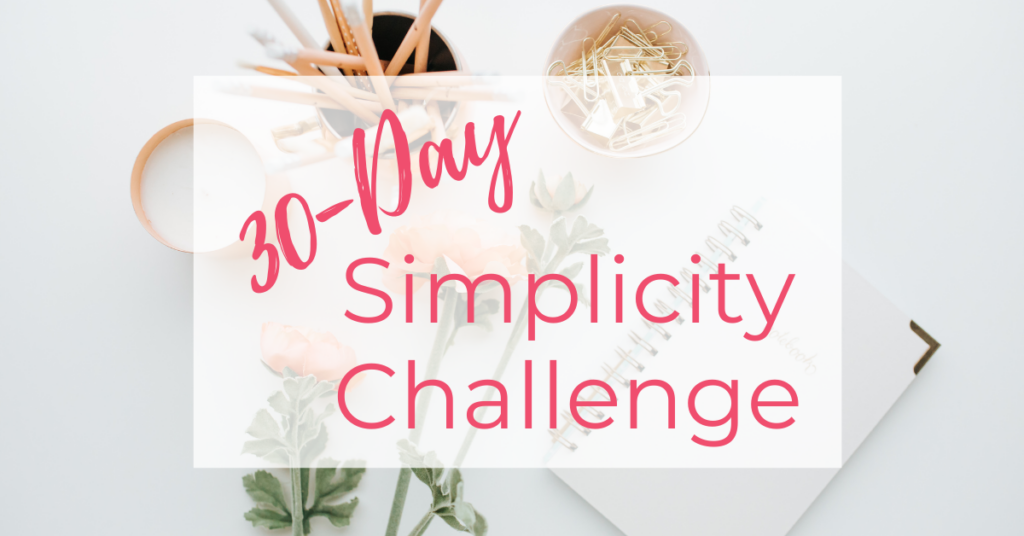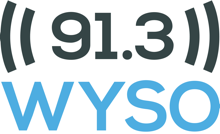This is a guest post from Julia Ubbenga of Rich in What Matters.
I didn’t get into minimalism for the financial benefits.
No, I was initially drawn toward a simple lifestyle with less stuff for one reason—so I could breathe in our home again.
I wanted less stress, less housework, and less anxiety. I wanted more down time, stronger relationships, and just an overall lighter life.
I’ve gotten all that and more.
Turns out, though…
When you stop striving to accumulate more and start enjoying the things you have, you also build breathing room in another important area of your life—your finances.
While financial health is certainly worth pursuing, it isn’t directly encouraged by our culture.
“Marketers are really impressive in their ability to manipulate the mind and create a need or perceived need out of what was a want,” Dave Ramsey said in the documentary The Minimalists: Less is Now. “We live in the most advertised to culture in the world. Hundreds of millions of dollars are spent telling us we need this, and it has an effect.”
In fact, the amount of money spent on advertising in the United States has increased from just over 5 billion dollars in the 1950s to over 240 billion dollars today. Advertisements feed us the lie that we, at our core, are not enough and if we only had that new beauty product, those new boots, or that new car, then we’d finally be complete.
And so we buy things, often without much consideration, in hopes that our next purchase will fill that void. But it never does. And our bank accounts take hit after hit.
Consider the following statistics from The Minimalist’s recent documentary:
- The average American holds 4 credit cards in their wallet.
- Average debt for indebted households is more than $16,000.
- Each year in this country more money is spent on shoes, jewelry and watches than higher education.
- The average American home has 300,000 things in it.
When we’re bated to believe that happiness lies in the next purchase and newer and bigger means better, we’re conditioned to spend. Yet studies continue to show that experiences bring more joy than stuff and that more money doesn’t equal more contentment (once you reach an income of $75,000, happiness levels flatline). This year, an AP Poll reported that Americans, in spite of their full homes, are the unhappiest they’ve been in 50 years.
Two years ago, our family lined up well with these “average American statistics.” Four credit cards, check. Debt that exceeded $16,000, check. A home filled with at least 300,000 things, check.
When we transitioned to a minimalist lifestyle, we began questioning our buying habits, examining our beliefs about our stuff, and letting go instead of accumulating more.
Today, our credit card debt is gone, our cars are paid off, and we’re able to live off one income.
Can adopting a minimalist lifestyle and mindset can pave the way for financial peace?
Absolutely.
Here are 10 simple ways minimalism will save you money.
1. Developing self-awareness
When you have less stuff in your home to clean and care for, you have more free time. With more intentional pauses in your day, you have space to reflect on your life. Time spent in introspection and prayer is needed for developing self-awareness and self-acceptance. When you really get to know yourself you learn what triggers you to shop, the real reasons you’re filling your life with stuff, and that you are enough just as you are. This self-knowledge leads to much less mindless consumerism and frivolous spending.
2. Spending less on clothes
Minimalist living often means living with fewer items of clothing. Owning a simple, intentional wardrobe, such as a capsule wardrobe, places guidelines on clothes shopping. Everything you buy will have a purpose, which means you won’t be tempted to buy random items. You won’t feel pressured by the latest fashion trends and won’t feel tempted to buy new clothes just to “fit in.”
3. Forgetting about “keeping up”
Minimalists don’t feel a need to “keep up with the Joneses.” You don’t worry about someone having more or nicer possessions than you. When you know life isn’t about your stuff, you’re not tempted to buy more of it just to look good. This results in you saving money.
4. Owning a smaller home
Minimalist living may inspire you to downsize. When you live in a smaller space, you have a smaller mortgage and spend less on utilities. With less stuff, fewer opportunities exist for repairs, keeping home maintenance costs lower and saving you money.
5. Not owning a storage unit
Minimalists own only what adds value to their lives. When you value experiences over stuff and you are quick to let go of unneeded and unloved items, then you don’t have a surplus of possessions. This means you won’t need to pay for a storage unit.
6. Thinking outside the box
Instead of impulsively buying something new, minimalists first see if something they already own could serve them. They think outside the box before spending. Baby wipes will clean your TV, keyboard and mouse just as well as pricey electronic cleaners. Coconut oil removes makeup as well as any expensive product. By using what you already have, you save money.
7. Not buying duplicate items
When you only own what you need and love, you don’t see a need to buy duplicate items. Why own seven pairs of jeans when you have one you love? Why own five spatulas when one will do the trick? This “less is more” mindset counters consumerism.
8. Buying multi-use items
Minimalists look to buy items that can serve them in multiple ways.
In our home, we own one kids’ table that we use for meals, art work, and school. Instead of owning multiple tables, we move this one around our home as needed.
We also have one stability ball in our home that we use as: my seat at the dinner table, our piano bench, and a piece of exercise equipment. We could buy two additional chairs, but see no need. This, of course, saves money.
9. Limiting the number of toys bought for kids
Before minimalism, I used to buy our daughter a new toy without thinking twice. I used toys as rewards and to shape behavior. After letting go of over 80% of these toys, I see daily that children play more creatively and deeply with fewer toys.
Currently, our girls love attaching a jump rope to the laundry basket and pulling each other around our home. They also love throwing sofa pillows on the floor pretending they are stones and the carpet is hot lava. These games take very few toys and can entertain them for quite a while.
If we’re buying our children toys all the time, what are we teaching them? That advertisements are right and they really do need new stuff to be happy. Buying toys infrequently not only diminishes the message of materialism, but also saves you money.
10. Shopping intentionally
Minimalist living gives you the space and time to align your life with your values. When you do need to purchase something, you do it intentionally, making a purchase that supports the life you’re creating. You no longer feel the need to shop just for fun or buy something just because it’s on sale. This saves you money for the things that matter most, which aren’t actually things.
In the Minimalist’s documentary Dave Ramsey also said so well, “We’re buying things we don’t really need with money we don’t really have to impress people we don’t really like. We’re giving up our freedom for some stuff that’s going to be worth nothing in next year’s garage sale.”
When we throw more and more money toward stuff, we lose focus of what matters most and lessen our ability to pursue it.
Minimalism brings freedom—from the burden of caring for too much stuff, from the weight of comparing your life to others, from the stress of believing marketers’ mind games, and from the guilt of impulse buying.
Simple minimalist mindset and lifestyle changes can lead to financial freedom.
Let’s make 2021 the year we give ourselves some financial breathing room by choosing to live with less.
Julia Ubbenga is a freelance journalist whose teachings on minimalism, simplicity, and intentional living have reached thousands of people worldwide through her blog www.richinwhatmatters.com. Julia practices what she preaches in her Kansas City apartment home with her husband, two lively young daughters, and 6-month-old son. You can connect with her on Instagram.
I hope you enjoyed this guest post from Julia! I know I did. As always, I wish you less clutter… and more you.
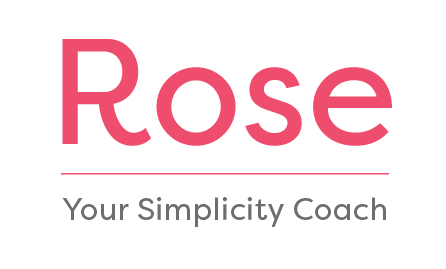
PS: If you’re a busy working mom who wants to simplify your work-mom life, but aren’t sure where to start… join me for my FREE *live* masterclass: How to Organize Your Family’s Home Without Exhausting Yourself or Resorting to Threats. Click here to save your spot!
